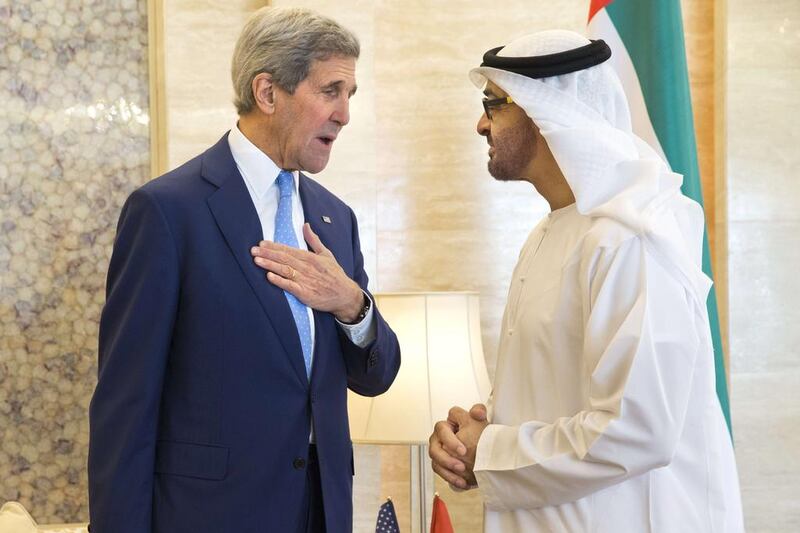Especially as we approach Commemoration Day, it is encouraging that US leaders have understood the unique role that the UAE plays in the region. When secretary of state John Kerry was in Abu Dhabi on Monday , he reaffirmedWashington’s commitment to the Saudi-led coalition’s intervention in Yemen. He also took particular care to speak about the UAE’s experience in the conflict and the “sacrifices” it has made in that regard.
This is the face of the US that the Middle East is keenest on, and one that has too often been missing: an America that listens to its allies and seeks to see the world from their perspective, taking into account the particular regional and national context. That ability to listen and consult with allies will be especially needed in the years ahead.
The Yemen intervention has not been easy. But it is very much a sign of things to come. The US has signalled, in words and deeds, that it is pivoting away from the Middle East towards Asia. As it does so, there will be more reasons for the Gulf states and other Arab countries to be involved in the affairs of the region. This will not necessarily – indeed hopefully not – be through military force, but through discussion, negotiation and cooperation. The US will be an important partner in this, although not the only one.
America’s role in the Middle East is evolving and so must its foreign policy. Of course US policy must be formulated in Washington. But it must take account of the stakeholders in the region. Strong alliances, such as the one this country enjoys with the US, work best when both sides have the same worldview.
That was clear at this week’s meeting between Mr Kerry and Sheikh Mohammed bin Zayed, Crown Prince of Abu Dhabi and Deputy Supreme Commander of the Armed Forces. On some of the main challenges the Middle East faces – in Yemen, in Syria and in Libya – the two countries share a broad agreement on the end result, even if differences remain.
That sort of frank discussion, along with understanding, will remain the bedrock of the alliance. It will be a necessary part of the new diplomatic relationship that the US will need with its allies in the region. Too often, the US has tried to do things in the Middle East without consultation or permission. It hasn’t worked well, for either side. A listening posture is better for both sides.





